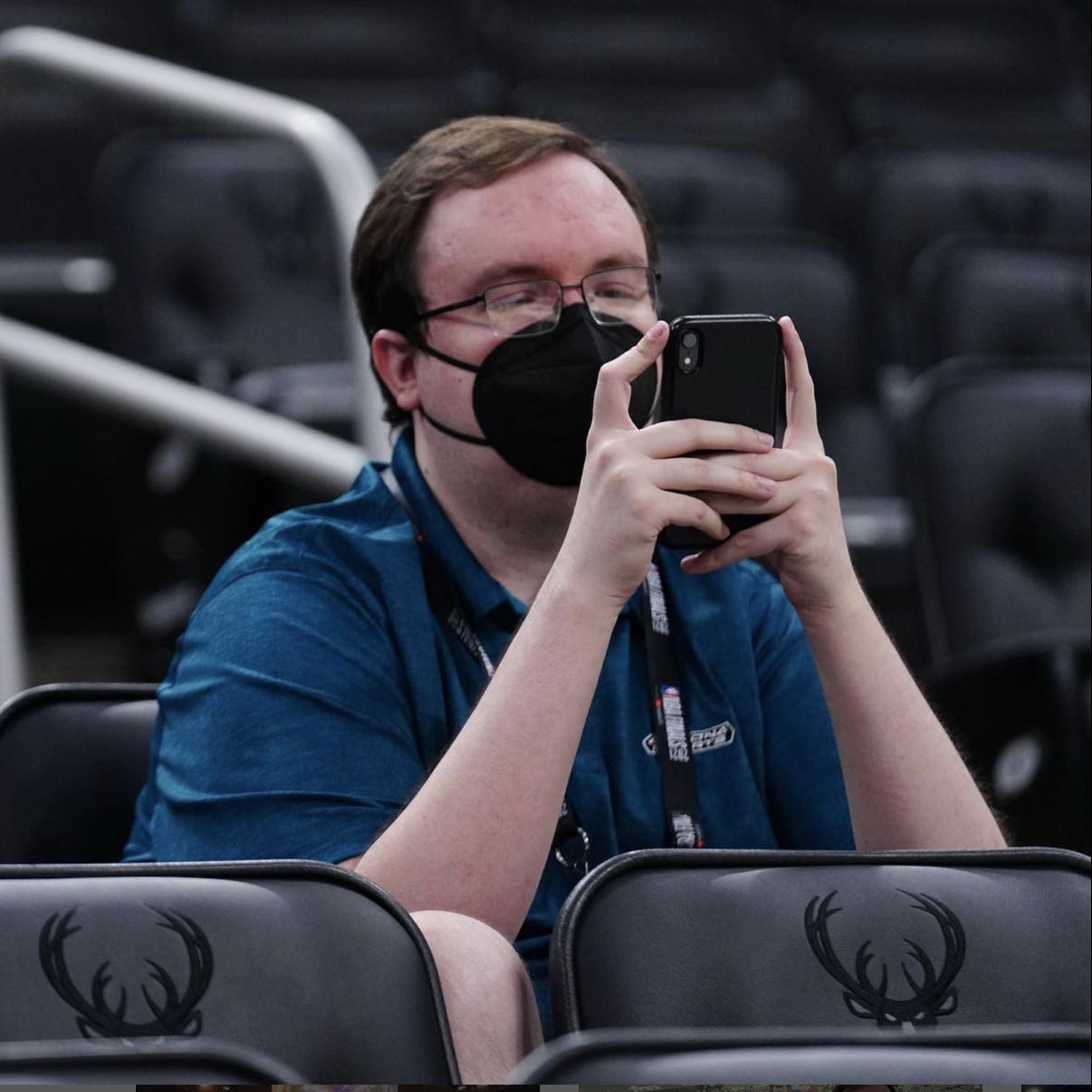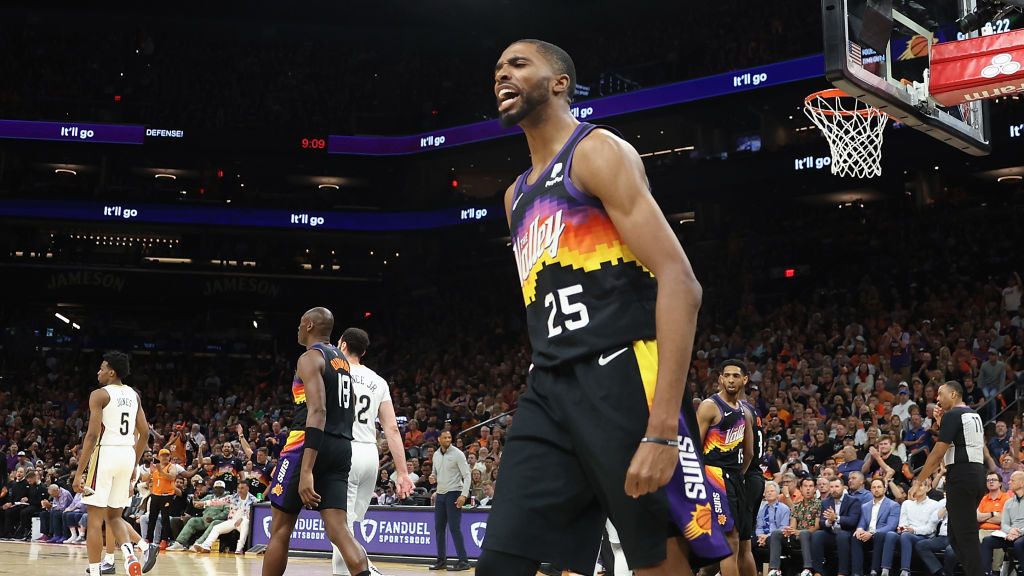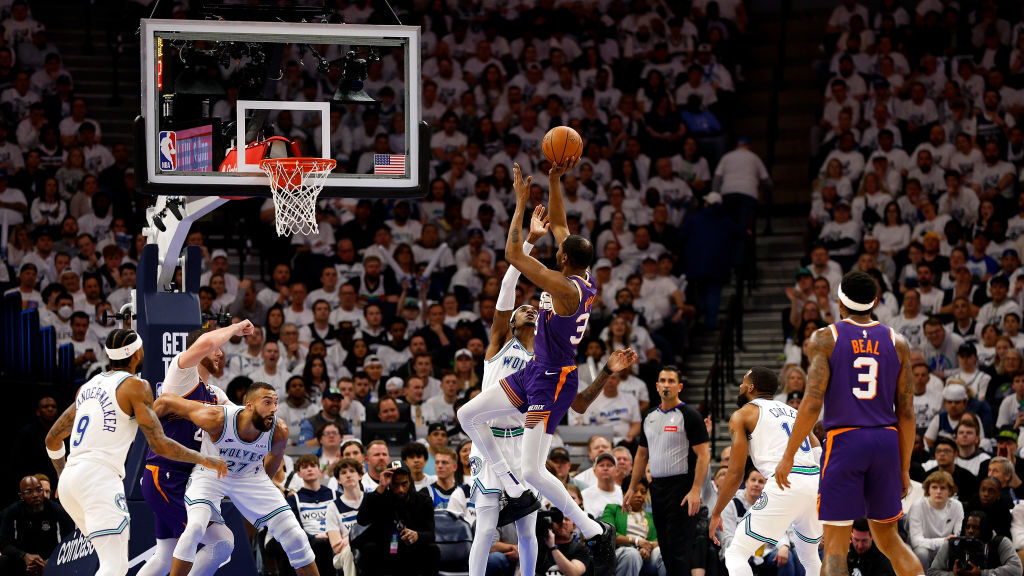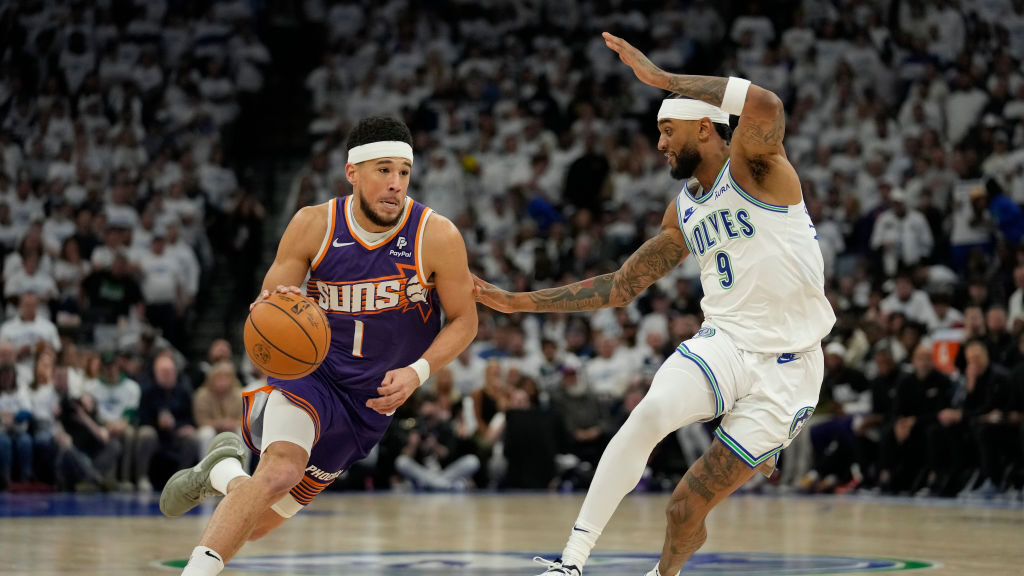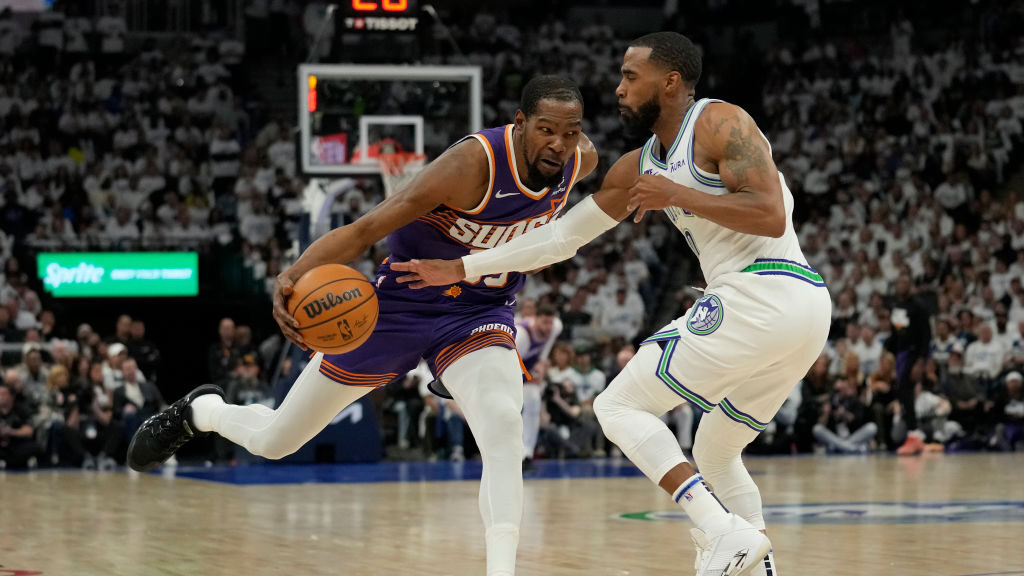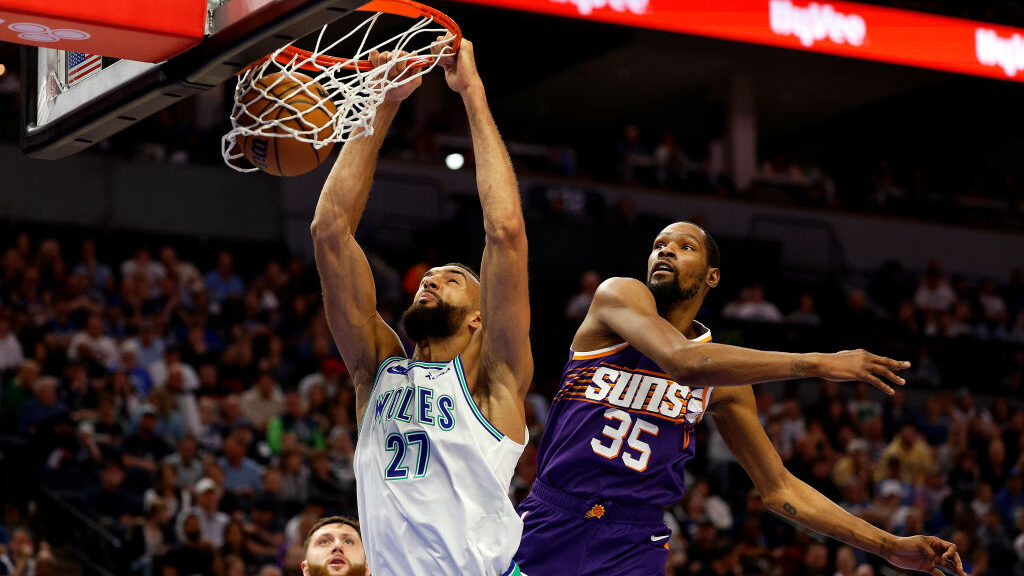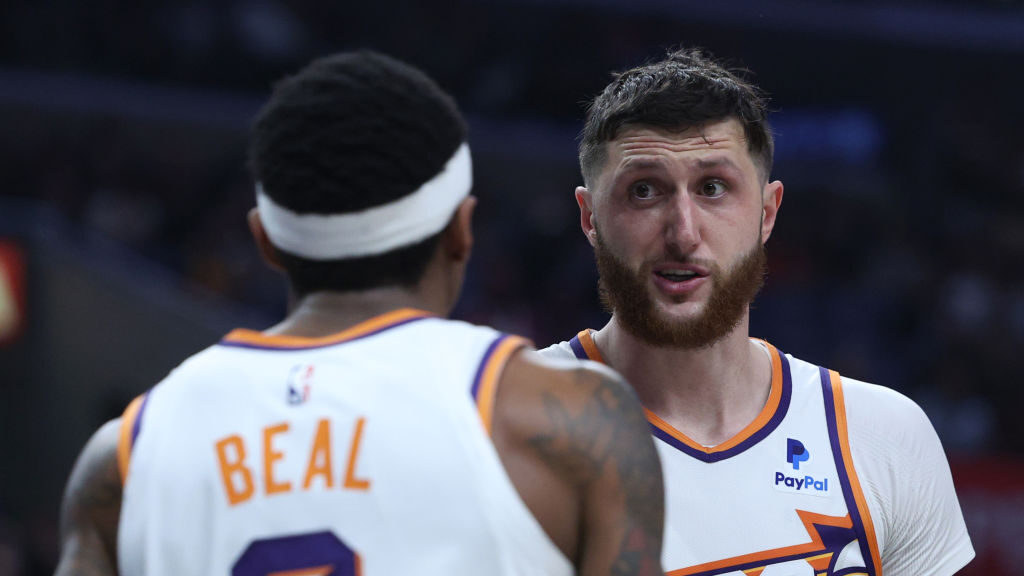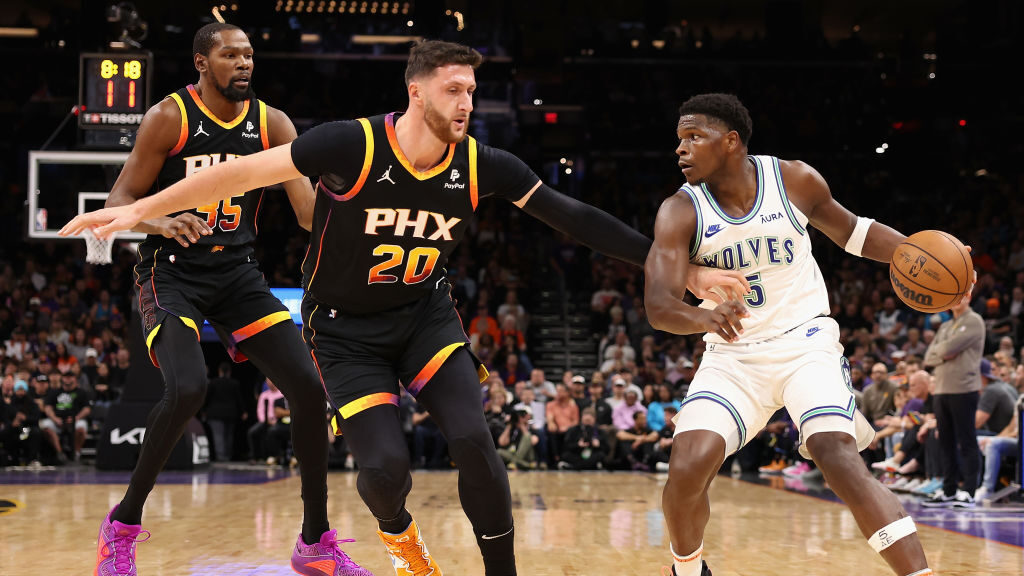Suns-Pelicans Game 6 preview: Booker’s return? Keys for each side
Apr 27, 2022, 8:08 PM
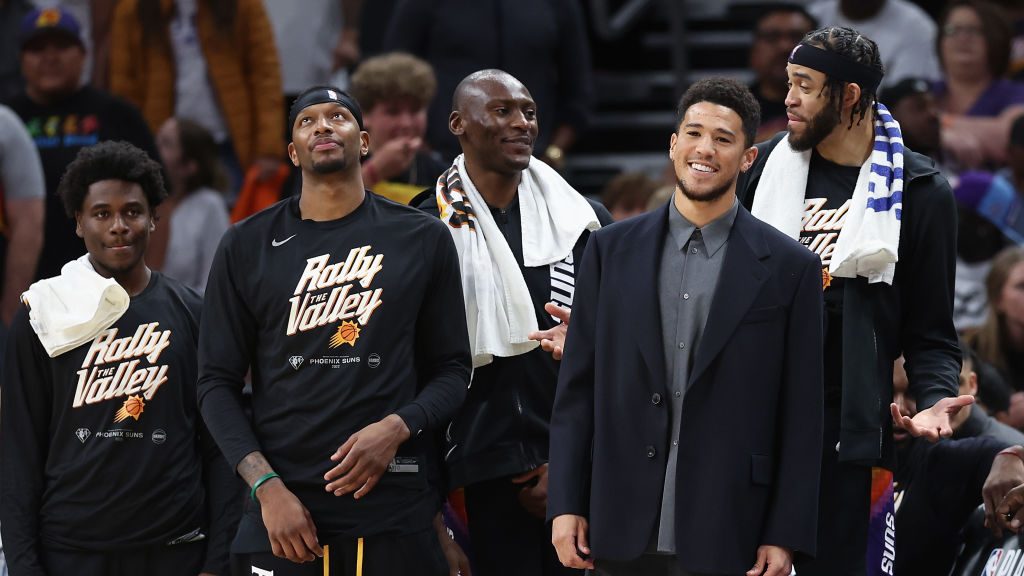
Devin Booker #1 of the Phoenix Suns reacts from the bench during the first half of Game Five of the Western Conference First Round NBA Playoffs against the New Orleans Pelicans at Footprint Center on April 26, 2022 in Phoenix, Arizona. (Photo by Christian Petersen/Getty Images)
(Photo by Christian Petersen/Getty Images)
NEW ORLEANS — In a first-round series that got hairy real quick, the Phoenix Suns now have to just win one out of the next two games to advance past the New Orleans Pelicans.
One of the two most positive developments for the Suns is they are coming off a Game 5 win in which they played their best game of the series and at long last looked like themselves. Secondly, ESPN’s Adrian Wojnarowski is reporting there is a possibility guard Devin Booker (mild right hamstring strain) could play in either Thursday’s Game 6 or an if-necessary Game 7 on Saturday after not playing since Game 2.
Booker is listed as out on the injury report but could be upgraded prior to the game and then wind up playing. While that rarely happens, it does from time to time, and Wojnarowski reports this could be one of those occasions.
Even if Booker’s 70-80%, his return would be enormous.
Chris Paul looked absolutely gassed near the end of the first half he played 21 minutes and scored 16 points in. The weight of being the primary option offensively for almost every possession he’s out there for is not something you’d expect the 36-year-old to be able to maintain for an entire postseason, or even a whole round.
Outside of the wings bringing the ball up to make the initial pass that kicks off the movement, it has been almost entirely on Paul. Ideally, Cam Payne would have been playing a spurt of minutes with Paul each half to help alleviate some of this workload.
Well, that has happened. But the problem is that Payne is still trying to find himself this postseason and we need to invent a new word for Payne’s play in Game 5 because erratic isn’t strong enough.
So, if Booker plays, having him put on the conductor hat every couple of trips down the court is exactly the type of relief the offense and Paul needs. There’s also the fact that Booker makes things more difficult for the Pelicans from a matchup perspective and takes away some of the freedom and versatility they were granted to gameplans solely based around stopping Paul.
It doesn’t even have to be 30+ minutes or 20+ points.
Lost in Booker’s emergence into one of the NBA’s stars the past year-plus is that he has become a very well-rounded basketball player. As we saw on Team USA last summer in Tokyo, Booker is more than capable of being a glue guy thanks to how smart he is, how solid he is defensively and how good of a driver, passer and shooter he is through playing really, really hard.
This season, Booker put up career-bests in rebounding (5.0 per game) and turnover percentage, where his 9.3% mark is the second-lowest among the 16 players with at least a usage percentage of 30% and 40 starts, per Stathead.
That type of player getting plugged into the starting lineup will allow the four other Suns on the floor to breathe a whole lot easier.
With that in mind, Booker playing isn’t a must for the Suns because of what Phoenix proved on Tuesday in Phoenix. For the first time in this series, the Suns managed to make both Brandon Ingram and C.J. McCollum not look like world-beaters, and that is what the Pelicans need offensively to win this thing.
Ingram made a handful of really tough shots still in Game 5 but his impact on the game wasn’t all that mighty. He shot 7-of-19 (36.8%) for 22 points after reaching 30 points in each of the previous three games.
There was a point in the second half of Game 4 where I proposed if Mikal Bridges was wearing down McCollum, and I think we’ve got our answer. McCollum is 15-for-43 (34.8%) from the field in the last two games and 3-of-17 on 3s.
McCollum is taking even more below-average looks in the last two games than he normally does. It appears that he’s just going to fire whenever he’s somewhat open, even if it’s not in the flow of the offense and an attempt the Suns invite him to let go. That’s the effect someone like Bridges on you for the majority of the series can have.
The challenge presented to Pelicans head coach Willie Green, who has already been terrific in this series, is to create more openings for his two stars in order to keep their season alive.
For Ingram, it’s the start of halves. A crazy stat through five games is that of Ingram’s 48 made field goals, 36 have come in the first or third quarter, exactly two-thirds.
All 11 of Ingram’s baskets in his 30-point Game 4 came then as well. The way he got rolling in the first couple minutes of the third quarter helped eliminate the momentum the Suns had obtained at the end of the first half.
As for McCollum, he has the look of a player who needs a couple of not necessarily freebies, but some slightly more friendly windows to score in. He got just that in the third quarter of Game 3.
While the Pelicans’ supporting cast has been great, their offense goes as those two do. If the Suns shut them down like they did in Game 5, there is an extremely good chance the series will be donezo.
Lastly, if Game 5 indeed turned out to be the Suns rediscovering their brand of basketball, the goal besides continuing that should be to definitively win the series by finding an edge where they haven’t in any matchup thus far.
New Orleans is +56 on the glass and the closest the margin has been in any of the five games is seven. I don’t know how achievable it is for the Suns to finally win that battle given the Pelicans’ mentality in sending players to crash the glass but coming out on top in an area of emphasis for each game would be a huge win for the group.
As for the other big problem, the Suns nearly won their first third quarter on Tuesday, a 32-30 edge for the Pelicans after New Orleans was +44 in the first four games.
The Suns have been preaching it at halftime for a few fixtures in a row now, so it’s a matter of finally translating that to the type of 12 minutes that could not only take the quarter but the series too.

